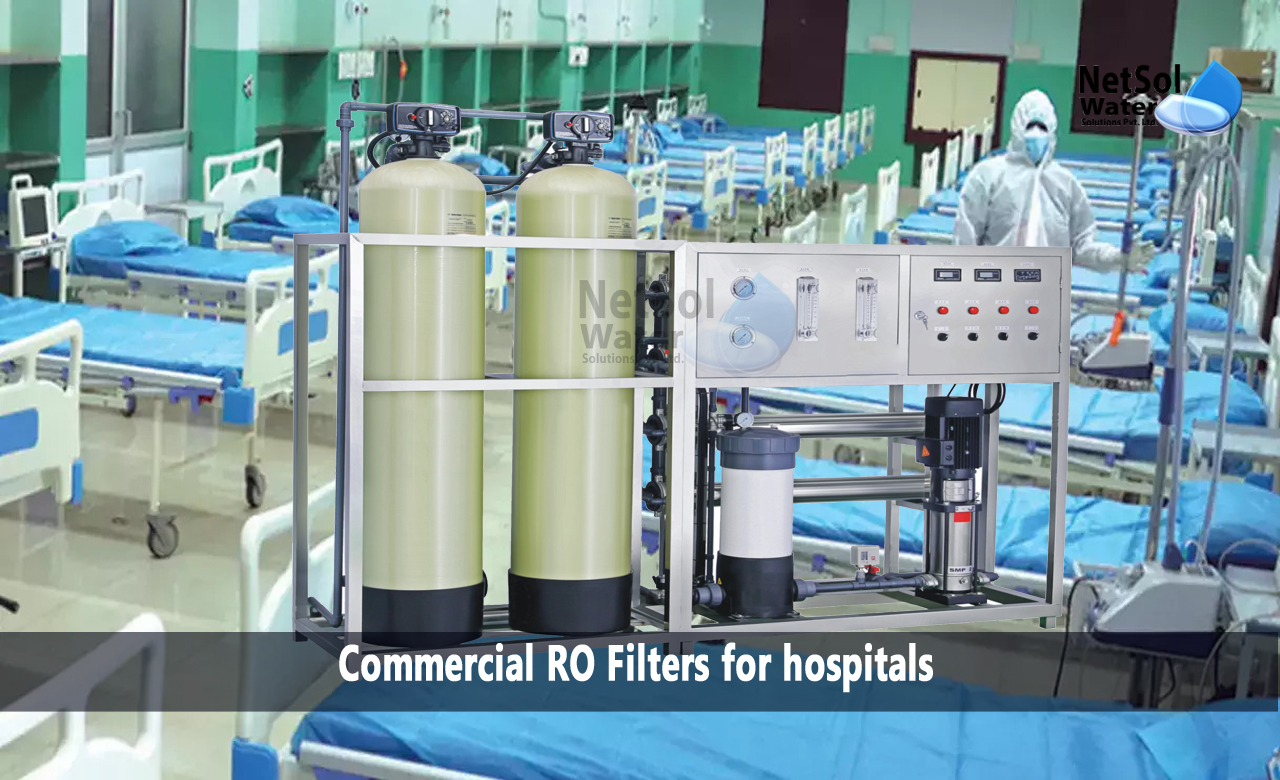What are the benefits of using commercial RO plants in hospitals?
Access to safe and clean drinking water is essential in every setting, but particularly in hospitals, where water quality can have a significant impact on patient outcomes. Hospitals must ensure that their water supply is free from impurities and contaminants that could harm patients, staff, and visitors. Commercial reverse osmosis (RO) filters are an effective solution for hospitals looking to maintain high water quality standards.
In this blog post, we will explore the benefits and considerations of using commercial RO filters in hospitals.
Benefits of Commercial RO Filters in Hospitals
- Enhanced Water Quality: Commercial RO filters remove a wide range of impurities and contaminants from water, including bacteria, viruses, and chemicals. This ensures that the water supply in hospitals is safe and free from harmful substances that could impact patient health.
- Cost Savings: Commercial RO filters can help hospitals save money by reducing the need for bottled water and other water treatment methods. Additionally, high-quality water can help extend the life of equipment and reduce maintenance costs.
- Environmental Sustainability: By reducing the use of bottled water and other water treatment methods, commercial RO filters can help hospitals reduce their environmental impact and contribute to sustainable practices.
- Compliance: Many hospitals are required to comply with strict water quality regulations and standards, and commercial RO filters can help them meet these requirements.
Considerations for Implementing Commercial RO Filters in Hospitals
- Upfront Costs: Commercial RO systems typically require a significant upfront investment. Hospitals must carefully evaluate the costs and benefits of installing a commercial RO system, including the cost of the equipment, installation, and any necessary upgrades to the existing plumbing or electrical systems.
- Maintenance: Like any other equipment, commercial RO filters require regular maintenance to operate effectively. Hospitals must establish a maintenance plan to ensure that the system is working correctly and to prevent any breakdowns or malfunctions. This may involve regular inspections, filter replacements, and cleaning.
- Water Consumption: Commercial RO filters can produce a significant amount of wastewater, which can impact water consumption rates and costs. Hospitals must consider the impact of wastewater on their water supply and costs and implement strategies to manage and reduce wastewater, such as recycling or reusing wastewater.
- Space and Location: Commercial RO systems require space for installation and operation. Hospitals must consider the physical space available and the location of the system to ensure that it is accessible for maintenance and monitoring.
- Staff Training: Hospitals must ensure that staff members are adequately trained to operate and maintain the commercial RO system. This includes training on the proper use of the system, maintenance procedures, and troubleshooting.
- Regulatory Compliance: Many hospitals are subject to strict regulations and standards for water quality. Hospitals must ensure that their commercial RO system complies with all relevant regulations and standards and obtain any necessary permits or approvals before installation.
Overall, while commercial RO filters offer many benefits for hospitals, there are several considerations that hospitals must take into account before implementing a system. By carefully evaluating the costs and benefits and establishing a maintenance plan and staff training program, hospitals can ensure that their commercial RO system is effective, efficient, and compliant with all relevant regulations and standards.
Conclusion
In conclusion, commercial RO filters are an essential investment for hospitals looking to ensure clean and safe drinking water for their patients, staff, and visitors. By removing impurities and contaminants from the water supply, hospitals can significantly improve patient outcomes and contribute to a safer and healthier healthcare environment. While there may be upfront costs and maintenance considerations, the long-term benefits of commercial RO filters, including cost savings and environmental sustainability, make them a valuable addition to any hospital's infrastructure. Ultimately, commercial RO filters play a crucial role in maintaining high water quality standards in hospitals, and their implementation should be carefully evaluated and prioritized for the benefit of patients and the healthcare community.
For any other support, inquiries, or product purchases, call on +91-9650608473 or email at enquiry@netsolwater.com



